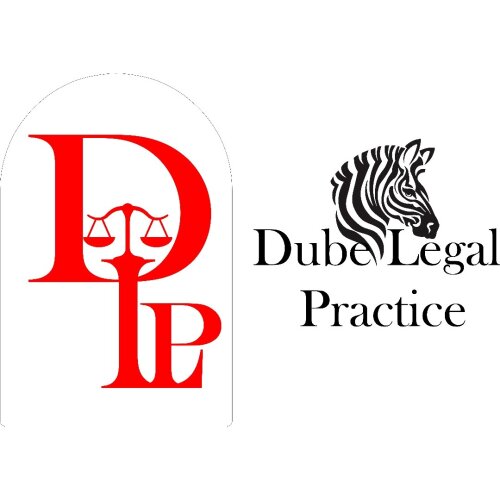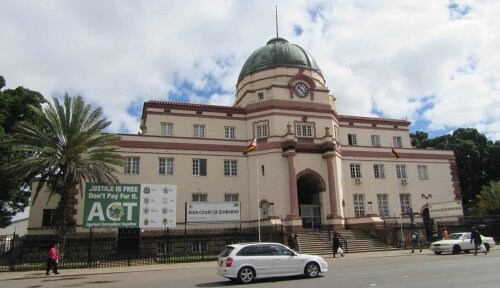Best Native People Lawyers in Bulawayo
Share your needs with us, get contacted by law firms.
Free. Takes 2 min.
List of the best lawyers in Bulawayo, Zimbabwe
About Native People Law in Bulawayo, Zimbabwe
Native People in Bulawayo, Zimbabwe, typically refers to the indigenous ethnic groups residing in the city and surrounding areas, most notably the Ndebele and other local communities. Zimbabwe recognizes the rights and statuses of its indigenous populations through a combination of customary law and statutory law. In Bulawayo, matters affecting the Native People often involve land rights, cultural heritage, traditional leadership, and how these interact with the country's legal and constitutional framework. The city itself is a hub of cultural heritage, and understanding the legal landscape is crucial for anyone seeking to navigate issues relating to indigenous rights or representation.
Why You May Need a Lawyer
There are several situations where individuals or groups from Native People communities in Bulawayo might require legal assistance. These include:
- Disputes over land ownership or inheritance, especially where customary and statutory laws intersect or conflict.
- Issues concerning the recognition of traditional leadership roles within the community, including chieftaincy disputes.
- Legal questions about the protection and management of cultural heritage sites and artifacts.
- Representation in cases involving unfair treatment, discrimination, or the violation of indigenous rights.
- Access to social services, education, and justice for marginalized or vulnerable community members.
- Navigating business or land transactions that impact communal lands or resources.
- Assistance with official documentation, such as birth certificates and identification, especially where traditional practices affect registration.
Local Laws Overview
The legal framework affecting Native People in Bulawayo is a blend of Zimbabwean statutory law and customary law. Key aspects to understand include:
- Constitution of Zimbabwe: Protects equality before the law, cultural rights, and recognizes customary law in matters such as marriage, inheritance, and traditional leadership.
- Customary Law and Local Courts Act: Allows certain disputes to be resolved according to customary norms, especially within the context of family and community matters.
- Traditional Leaders Act: Regulates the appointment, functions, and jurisdiction of chiefs and village heads, who play significant roles in Native People communities.
- Communal Land Act: Concerns the allocation, use, and protection of communal lands, which are often inhabited by indigenous communities.
- Provincial and Local Government Laws: Address the governance of communities and the integration of traditional leaders in municipal decision-making.
- Human Rights Protections: The Zimbabwe Human Rights Commission and the courts oversee the enforcement of indigenous peoples’ rights under national and international law.
Frequently Asked Questions
Who are classified as Native People in Bulawayo?
Native People generally refer to those belonging to indigenous ethnic groups in the Bulawayo area, including the Ndebele and related communities with cultural, historical, or ancestral links to the region.
What legal rights do Native People have in Bulawayo?
Native People have rights protected under the national constitution, including cultural rights, land rights under communal law, and the right to participate in traditional leadership systems.
Can traditional leaders resolve legal disputes?
Yes, traditional leaders such as chiefs and headmen have authority to resolve certain disputes under customary law, particularly those related to family matters, minor civil disputes, and some inheritance cases.
What if customary law contradicts statutory law?
Statutory law generally prevails, especially in criminal matters and constitutional rights, but customary law is recognized in family, inheritance, and cultural cases, provided it does not contravene the national constitution.
Are land rights for Native People different from freehold land?
Yes, land occupied by Native People is often communal, governed by traditional leaders and local rules, unlike private freehold land which is subject to different regulations and ownership rights.
How can Native People protect their cultural heritage?
Zimbabwean law provides protection for cultural sites and artifacts, and Native People can work with government bodies or seek legal orders to prevent desecration or unlawful use of heritage resources.
Can a Native Person challenge the appointment of a traditional leader?
Yes, if the appointment process violates established custom or legal requirements, members of the community can challenge it in the appropriate local or national court.
What support exists for Native People facing discrimination?
The Zimbabwe Human Rights Commission and the courts offer recourse for any individuals facing discrimination, and legal aid is sometimes available through government or nonprofit organizations.
Do Native People need legal documents for government services?
Yes, documents like birth certificates and IDs are necessary for accessing many services, and individuals having trouble with documentation due to traditional factors can seek help from local legal clinics or offices.
Where can Native People in Bulawayo access free or low-cost legal advice?
Legal aid societies, university law clinics, and some community-based organizations offer free or subsidized legal assistance to those in need, especially on matters specific to indigenous rights and customary law.
Additional Resources
Individuals seeking legal advice or support relating to Native People in Bulawayo can approach the following resources:
- Zimbabwe Human Rights Commission - Handles cases related to discrimination, human rights violations, and the protection of indigenous rights.
- Ministry of Justice, Legal and Parliamentary Affairs - Provides information on legal procedures, customary law, and legal aid services.
- Legal Aid Directorate - Offers free and low-cost legal assistance.
- Bulawayo Legal Projects Centre - A community-based organization focused on legal rights and access to justice.
- Local Traditional Leadership Offices - Chiefs and headmen can guide on customary disputes and community matters.
- Zimbabwe Lawyers for Human Rights - Advocates for the legal protection of vulnerable groups, including Native People.
Next Steps
If you are a Native Person in Bulawayo needing legal advice or support:
- Identify the specific legal issue you are facing - whether it is a land dispute, leadership challenge, or cultural rights matter.
- Collect all relevant documents, such as birth certificates, land allocation letters, or any correspondence related to your case.
- Visit or contact a local legal aid office, community legal clinic, or the Zimbabwe Human Rights Commission to request an appointment.
- If your issue involves customary law, meet with your local traditional leader, such as a chief or headman, who can guide or mediate in accordance with local practice.
- Prepare to explain your situation clearly and provide any evidence, including names of witnesses or supporting community members.
- If you do not receive adequate help locally, consider escalating your matter to the courts or seeking assistance from a specialist lawyer in Native People law.
Acting quickly and seeking appropriate legal assistance can help ensure your rights are protected and lead to the best possible outcome for your case.
Lawzana helps you find the best lawyers and law firms in Bulawayo through a curated and pre-screened list of qualified legal professionals. Our platform offers rankings and detailed profiles of attorneys and law firms, allowing you to compare based on practice areas, including Native People, experience, and client feedback.
Each profile includes a description of the firm's areas of practice, client reviews, team members and partners, year of establishment, spoken languages, office locations, contact information, social media presence, and any published articles or resources. Most firms on our platform speak English and are experienced in both local and international legal matters.
Get a quote from top-rated law firms in Bulawayo, Zimbabwe — quickly, securely, and without unnecessary hassle.
Disclaimer:
The information provided on this page is for general informational purposes only and does not constitute legal advice. While we strive to ensure the accuracy and relevance of the content, legal information may change over time, and interpretations of the law can vary. You should always consult with a qualified legal professional for advice specific to your situation.
We disclaim all liability for actions taken or not taken based on the content of this page. If you believe any information is incorrect or outdated, please contact us, and we will review and update it where appropriate.










